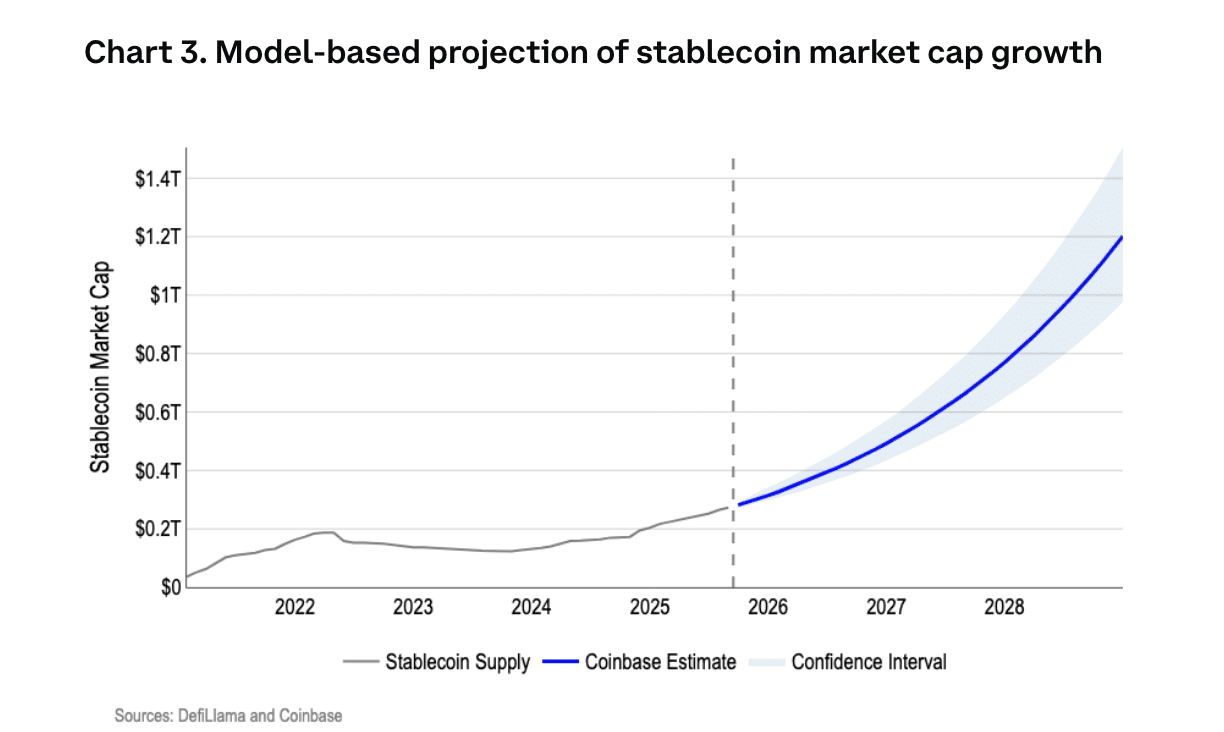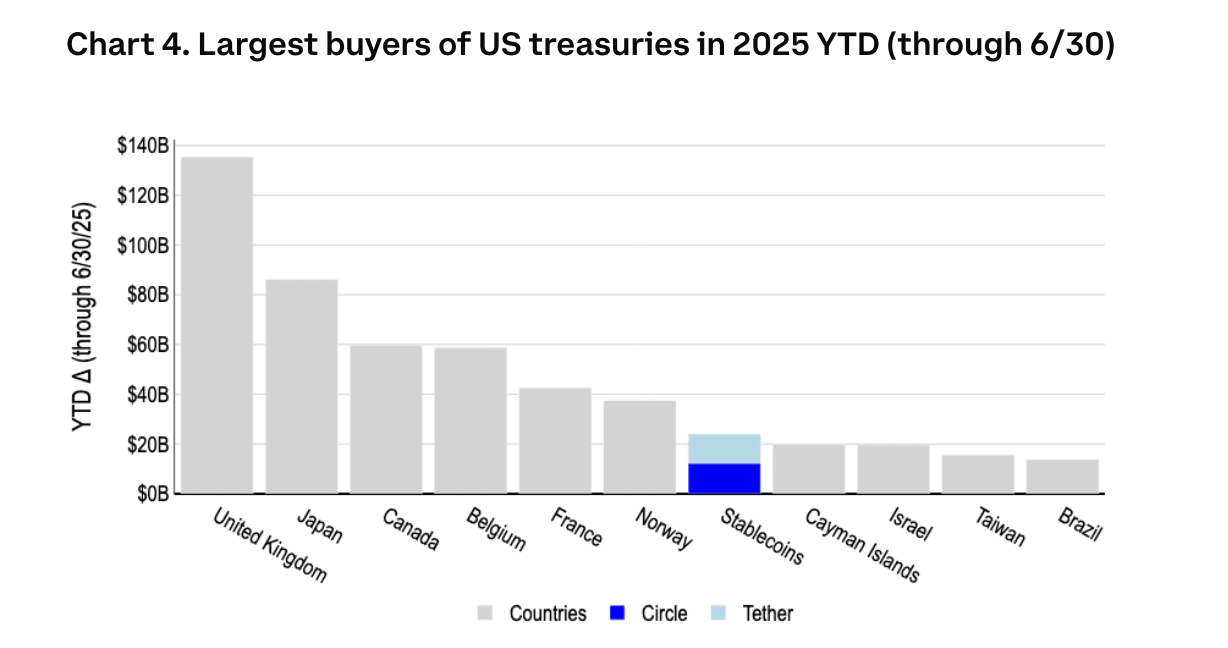Original title: Coinbase predicts trillion-dollar stablecoin era by 2028
Original author: Vince Quill
Original source: https://cointelegraph.com/
Compiled by Daisy, Mars Finance
The forecast, released Thursday, comes amid renewed interest in stablecoins among governments worldwide. Cryptocurrency exchange Coinbase predicts the total market for dollar-pegged stablecoins will swell to $1.2 trillion by 2028, driven by sweeping U.S. crypto regulations.
Coinbase said the forecast means the U.S. Treasury would need to maintain $5.3 billion in weekly Treasury issuance over the next three years to meet demand from stablecoin issuers, which use short-term U.S. Treasury bills as collateral to back their digital fiat tokens.

Projection of stablecoin market cap by 2028. Source: Coinbase
This issuance plan would result in a slight, temporary drop of 4.5 basis points (BPS) in three-month Treasury yields, contradicting analysts’ predictions that demand from stablecoin issuers would significantly depress U.S. government debt rates.
Coinbase wrote:
We believe this forecast does not require unrealistically large or permanent interest rate dislocations to achieve, but rather relies on compounding policy-driven adoption that develops gradually over time.
Coinbase said the passage of the (GENIUS Act) was a catalyst for the growth of the U.S. stablecoin market, with the comprehensive regulatory framework set to take effect in January 2027.
However, U.S. legislation has forced other countries to consider legalizing their own stablecoins to remain competitive with the dollar in the digital age.
The stablecoin space continues to expand as other countries sign off on joining the fray.
Private stablecoin issuers such as Tether and Circle have become the largest buyers of U.S. government debt, surpassing countries such as South Korea, the United Arab Emirates and Germany.

Stablecoins have become a top buyer of US government debt in 2025, beating out most countries. Source: Coinbase
While US dollar-denominated stablecoins have dominated the market to date, other countries are exploring the use of stablecoins as a supplement to traditional fiat currencies. South Korea's Financial Services Commission (FSC), a government regulator, announced that it will submit a comprehensive stablecoin regulatory bill to the legislature in October. The Chinese government, long opposed to cryptocurrencies and privately issued currencies, has reportedly signaled it will allow RMB-denominated stablecoins to circulate in the market.
Analysts and industry executives say any launch of a yuan stablecoin would likely be limited to China’s special economic zones, such as Hong Kong, and international currency markets.

